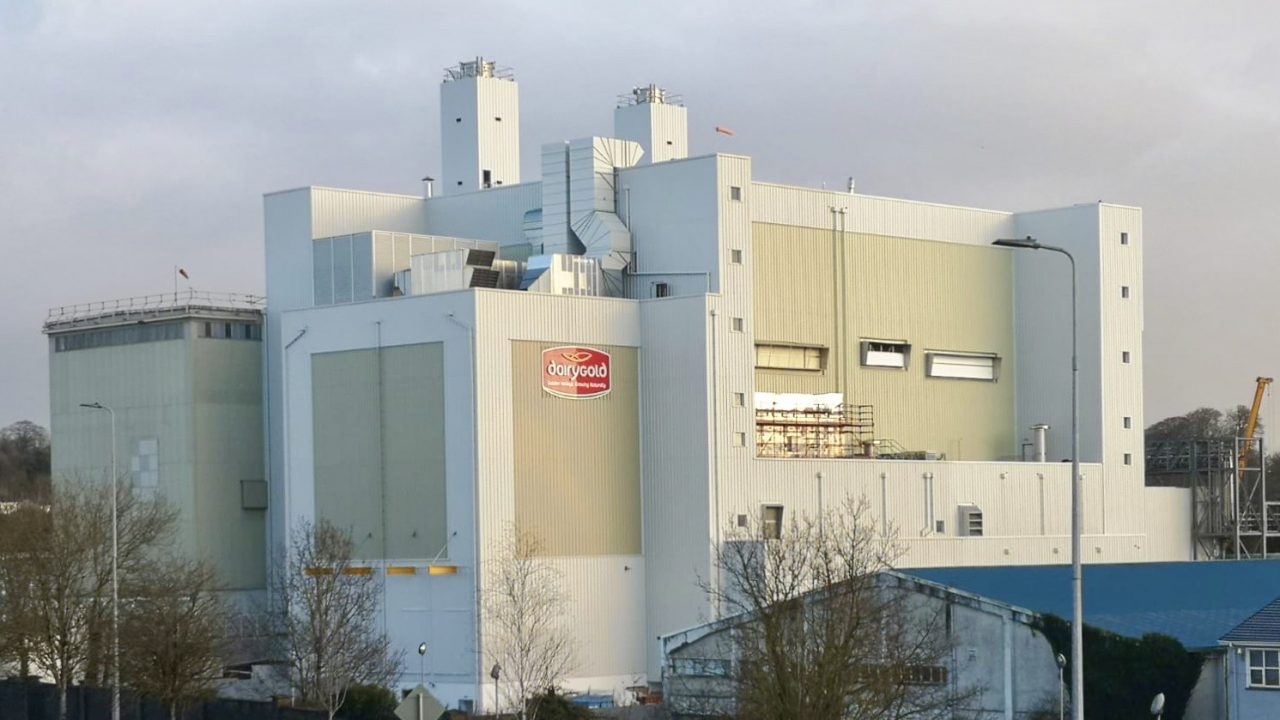Dairygold has announced its financial results for 2019, showing an annual turnover of €1.02 billion, an increase of €27.5 million (2.7%) on the prior year.
The results also show an EBITDA (earnings before interest, taxes, depreciation, and amortization) of €56.6 million, an increase of €8 million (16%) on the previous year.
Meanwhile, Dairygold’s operating profit for the year stood at €35.8 million, an increase of €6.8 million (24%) on the 2018 operating profit of €29 million.
Dairygold invested €85 million of cash in capital projects during the year, primarily as part of its €130 million Phase II Post Quota Primary Processing Investment Programme. According to the co-op, it has now invested €225 million in capital projects over the past five years.
Dairygold says that its year-end net bank debt of €157 million “remains at a manageable level” given the scale of the organisation and levels of profitability.
At year end, the net asset value of the business was €373 million, an increase of €35 million (10%) on the previous year.
Dairygold delivered a strong financial result in 2019, supported by robust performances across our dairy and agri-businesses and favourable property transactions.
“A decade of capital investment has now delivered significantly increased processing capacity and a more efficient dairy processing capability,” said Jim Woulfe, Dairygold CEO.
Dairygold chairman John O’Gorman added: “Over the last 10 years, Dairygold has supported its milk suppliers to increase overall milk production by 65% and in the process completely transformed its business into a world class provider of dairy ingredients for the international marketplace.
“The business is financially strong and well invested, ready for Dairygold’s next phase of growth and development,” O’Gorman remarked.
Dairy markets/business
Dairygold observes that moderate growth in global milk production, combined with modest demand, provided a reasonably balanced global market for dairy produce throughout 2019. However, concerns remain over US trade tariffs, as well as new concerns over Covid-19.
On the dairy business side, Dairygold is in the process of concluding a €130 million capital investment programme required to deliver the “increased processing capacity, product mix flexibility and commercial opportunity required to manage milk growth forecasts to 2023”.
This investment is across three Cork-based projects: the new Jarlsberg Cheese Manufacturing facility in Mogeely; the redevelopment of demineralised whey production at Castlefarm Dairy Processing Complex in Mitchelstown; and a new Milk Evaporator and Drier at Dairygold’s Nutritionals Campus in Mallow.
Agri-business
Dairygold’s feed, fertiliser and grain interests delivered “satisfactory performance”, the co-op said.
Demand for both fertiliser and feed was down due to the absence of extreme weather conditions, Dairygold noted.
The agri-business continued its €17 million capital investment programme in 2019 which involved the establishment of a centralised agri-business centre and the rebuilding of three co-op superstores.
Future expansion and Brexit
According to Dairygold’s 2020-2025 Milk Planning Census, milk volume growth is expected to continue across the co-op’s catchment area, but it will be more measured and incremental than the growth rates seen in the first wave of post-quota expansion.
On Brexit, Dairygold noted that it remained a business concern, stating that “it is critical that the future trade agreement is as close to the existing trading arrangements as possible”.
Covid-19
The business says that it is “clear that EU support measures for the Irish dairy industry are needed” in light of Covid-19.
Dairygold has established an in-house ‘Pandemic Response Steering Group’, which will monitor the situation to “ensure that all necessary actions and appropriate measures are being taken” to meet health and safety standards.
“With peak Covid-19 impact likely to coincide with peak milk processing in an industry that utilises a perishable raw material like milk, it is essential to explore all contingency measures. As a company and an industry we are putting significant effort into doing that,” the co-op highlighted.
